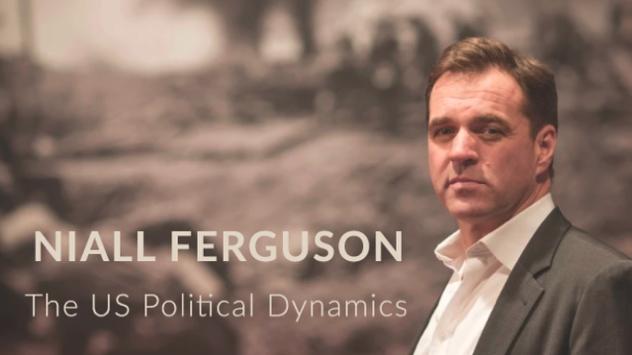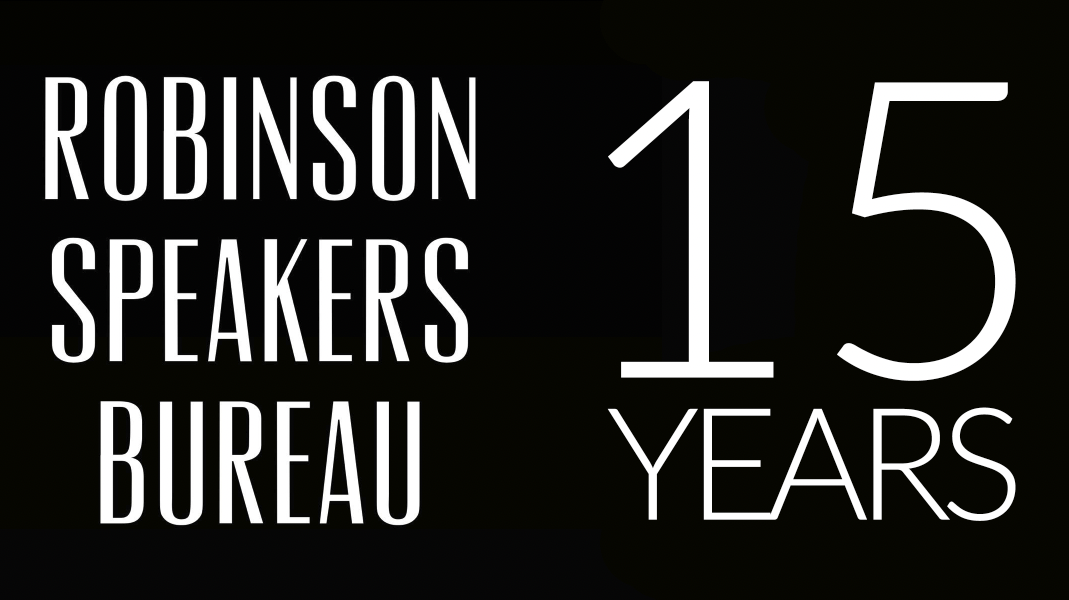
By James Robinson
We respect Niall Ferguson’s intellect and historic lens he layers over today’s complex issues. He is arguably the most important historian currently alive, and many of his books are collecting dust in our office (after having read them, of course!). This article is based on an interview he gave with the former Deputy PM of Australia, John Anderson.
One of Ferguson’s central themes in this discussion is the remarkable resurgence of Donald Trump in American politics. Against the expectations of many—Ferguson included—Trump has reemerged as a central figure, propelled by a broad swath of voters disillusioned by globalization and a political elite seen as detached from their concerns. Trump, Ferguson argues, has managed to channel the economic and cultural frustrations of millions of Americans into a coherent populist message. He underscores that Trump’s appeal lies not just in his policies but in his unpredictability—a quality that, for Ferguson, underscores the depth of voter dissatisfaction with the status quo.
Ferguson sees Trump’s capacity to disrupt the conventional Washington consensus as particularly critical in foreign policy, notably concerning China. Unlike previous presidents, Trump openly challenged the notion that China’s integration into global markets would bring about democratic reform. Instead, Trump reframed the relationship as an economic and ideological rivalry, initiating policies that reshaped the US-China dynamic. Ferguson contends that this shift was critical, sparking a bipartisan consensus on the need to confront China, a policy direction that endures even after Trump’s departure from office.
America’s Institutional Crisis: The Erosion of Higher Education
A major theme in Ferguson’s work is the gradual capture of American educational institutions by what he terms the “progressive left.” For Ferguson, this ideological shift has transformed universities from bastions of intellectual diversity into zones of enforced ideological conformity. The rise of self-censorship, coupled with an intolerance for dissent, represents a significant departure from the traditional mission of higher education in the Western world.
In response, Ferguson and several colleagues founded an alternative university in Austin, Texas, a venture they hope will become a haven for what he calls “The Fearless Pursuit of Truth.” The project is more than an academic experiment—it is, in Ferguson’s view, a necessary alternative to institutions he believes have betrayed their foundational principles. This new university embodies Ferguson’s conviction that reclaiming intellectual rigor and freedom requires new institutions, not reforming the old ones.
A Historical Pattern of American Overreach
In Ferguson’s view, the United States is currently confronting the consequences of decades of overreach. After the Cold War, there was an ill-fated belief that the world could be remade in America’s image. This belief led to a series of military interventions and a policy of globalization that, according to Ferguson, ultimately backfired. American attempts to impose its values abroad—whether by force or economic integration—have met with growing resistance and have often yielded unintended consequences.
The Trump administration, Ferguson suggests, was the first to break from this tradition. Rather than pursuing endless “wars of democracy,” Trump offered a vision of “peace through strength,” a concept reminiscent of Reagan’s foreign policy. Ferguson sees this as a more sustainable approach, one that resonates with voters weary of foreign entanglements and doubtful of the benefits of spreading democracy through military intervention.
The Biden Presidency and Strategic Drift
Ferguson’s critique of the Biden administration is unrelenting. He describes a nation in strategic drift, led by a president whose mental and physical faculties have visibly declined. This is not merely an issue of age; for Ferguson, Biden’s presidency symbolizes the weakness of the American political establishment and its detachment from the realities faced by the average voter.
Ferguson is particularly scathing in his analysis of Vice President Kamala Harris, whom he views as an uninspiring leader with little chance of winning public support. Harris’s lack of substantial political achievements and her frequent gaffes in public speaking contribute to what Ferguson considers a profound leadership vacuum within the Democratic Party.
Ferguson warns that this lack of clear and competent leadership is a serious liability, especially in foreign affairs. The administration’s inconsistent responses to crises in the Middle East, Eastern Europe, and Asia highlight, in his view, the dangers of a reactive rather than proactive approach to global affairs. This, Ferguson suggests, has only emboldened adversaries like Russia, Iran, and China, who perceive American weakness as an opportunity.
Geopolitical Flashpoints: Middle East, China, and the “Second Cold War”
Ferguson is unapologetic in his portrayal of China as a serious and growing threat to Western stability. He contends that the United States is already in a “Second Cold War” with China, a conflict whose stakes are arguably higher than the first. While the Cold War with the Soviet Union was largely ideological, the modern confrontation with China involves both economic and military dimensions. Ferguson believes that the United States must prepare for a long-term struggle, one that will require both strategic clarity and resolve.
The Middle East also figures prominently in Ferguson’s analysis. He argues that the Biden administration’s approach to Iran, particularly its attempts to revive the nuclear deal, has only fueled instability in the region. The resumption of negotiations with Iran, Ferguson asserts, is a misguided attempt to placate a regime openly hostile to the West. By relaxing sanctions, the US has inadvertently empowered Iran’s proxies, such as Hamas and Hezbollah, who continue to threaten Israel and destabilize the region.
In contrast, Ferguson praises the “Abraham Accords” brokered during the Trump administration, which normalized relations between Israel and several Arab nations. These accords, he argues, represent a promising new direction for the region, one that could isolate Iran and foster cooperation between Israel and its Arab neighbors.
The Enduring Threat of Anti-Semitism
Finally, Ferguson draws attention to a disturbing resurgence of anti-Semitism, particularly on university campuses. This phenomenon, he argues, has been incubated by a combination of far-left and Islamist ideologies, creating what he calls a “toxic brew.” The recent escalation of violence in the Middle East has brought this anti-Semitism into sharper focus, revealing, to Ferguson’s dismay, a pervasive prejudice that many believed had been relegated to history.
Ferguson is concerned that Western societies have lost sight of the lessons of the Holocaust. The brutal attacks by Hamas in October 2023 served as a stark reminder of the persistent threat to Israel’s existence. For Ferguson, the Jewish state’s right to defend itself is not only a moral imperative but a historical duty, one rooted in the memory of the Holocaust and the promise of “never again.”
Conclusion: A Crossroads for America and the West
Ferguson’s commentary presents a picture of a world in flux, with the United States at a critical juncture. The choices made by American voters in the coming years will, in Ferguson’s view, determine not only the country’s fate but that of the Western world as a whole. His vision is not without hope; he believes in the resilience of democratic institutions and the enduring appeal of the Western values of freedom and tolerance. However, he is clear-eyed about the challenges ahead, urging a return to principled leadership and a rejection of ideological conformity.
In sum, Ferguson’s insights are a call to action. Like Paul Johnson, he uses history as a mirror, reflecting the strengths and weaknesses of modern civilization. He warns that America’s current path is unsustainable, but he also offers a blueprint for renewal—one grounded in intellectual courage, strategic foresight, and an unwavering commitment to truth.
Niall Ferguson is the Milbank Family Senior Fellow at the Hoover Institution, Stanford University, and a senior faculty fellow of the Belfer Center for Science and International Affairs at Harvard University. His most recent book is Doom: The Politics of Catastrophe.
